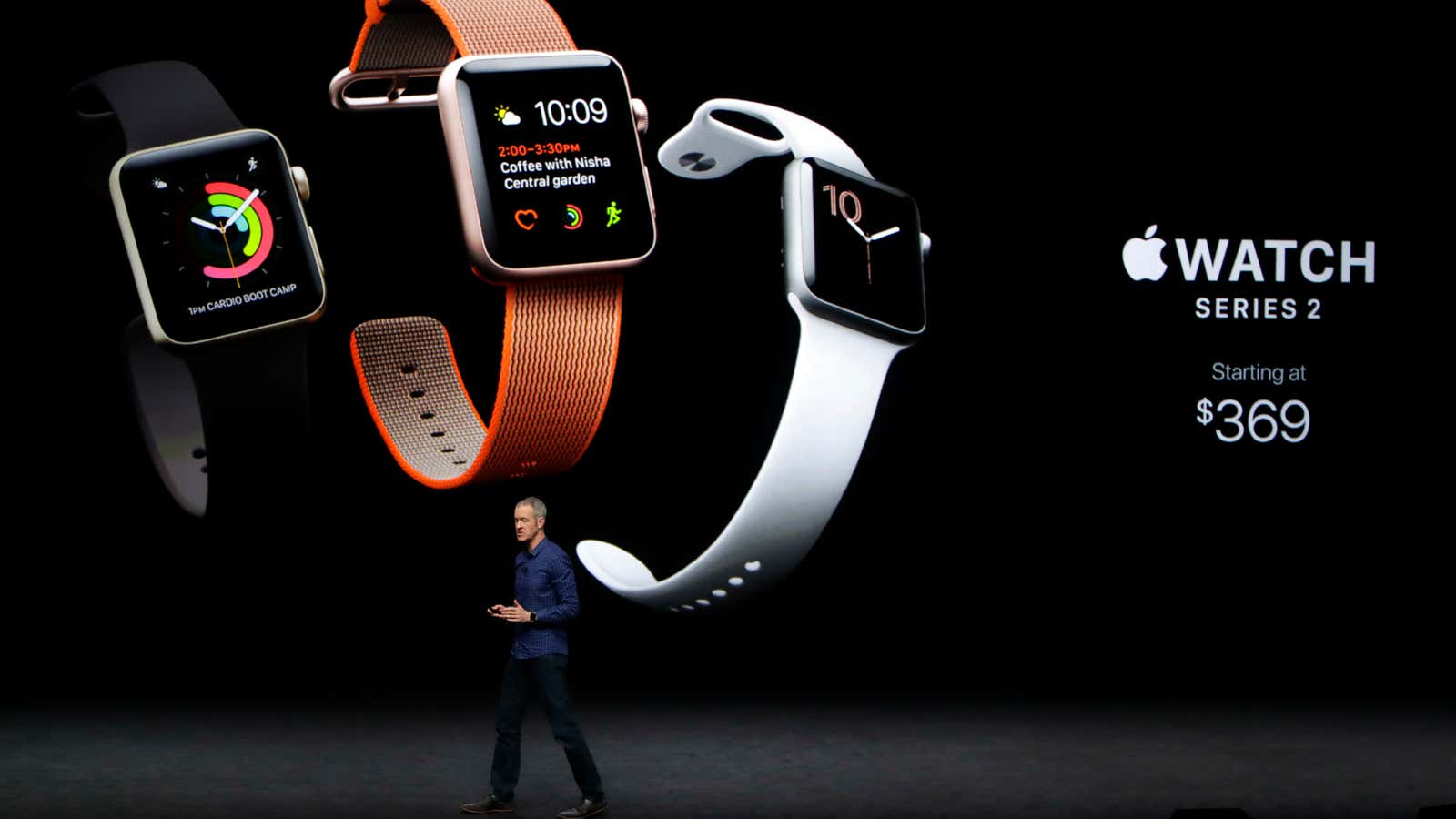Apple has won a lot of fights. It set the standard for the modern smartphone and tablet, reinvented the way we consume music, and killed disk drives for laptops (hard, compact, or floppy, take your pick).
For all these fights, Apple had to go up against the tech industry titans of their time: Microsoft, IBM, Nokia. It was the strategy of a company climbing its way to the top: find the biggest guy in the room and punch him in the face. Nokia had an estimated 48% share of the smartphone market and nearly $80 billion market cap in 2006. In 2008, that market share was less than 40%. In 2010, less than 30%. Now, it’s gone. It’s not 100% Apple’s doing, but Steve Jobs changed the game to such an extent that Nokia couldn’t react.
You’ll find the same story with MP3 players and online music distribution services.
But, with its intentions in the auto space unclear and in serious doubt, where does the biggest company in the world by market cap go for a fight? All the way down, it seems, to startups like Fitbit and Spotify.
A seeming lack of demand has made Apple pitch the Apple Watch, the first entirely new product launched by the company since the death of Jobs, as the ultimate fitness tracker, rather than the ultimate smartwatch. In 2015, Apple was going to battle Samsung to make the wrist computer of the future. Now, just a year later, it’s struggling to catch up with Fitbit in terms of units sold, while it tries to sell the Ferrari of step counting.
By the numbers, it’s out of character for Apple to position itself against such a small company and in such a small market.
To compare their size, Fitbit has a market cap of around $3 billion, while Apple clocks in at more than $620 billion. The fitness tracker market itself is projected to reach $5.4 billion by 2019. And that’s a market Fitbit has led since at least 2014, although Apple is admittedly chipping away at its lead. But even if Apple owned the entire projected fitness tracking market by 2019, sales from the Watch would be just about 2% of Apple’s 2015 revenue.
Beyond projected revenue, the Apple Watch Series 2 is absurdly priced for the market, at $369. Fitbit’s Flex 2, a fitness tracker that’s equal to Apple’s new product in waterproofing and data collected, costs $99. If you wanted Fitbit’s “stylish” Blaze smartwatch, it would still be more than $150 cheaper than the Watch, at $200. Xiaomi’s Mi Band 2, also waterproof and similar in most ways, costs around $30.
Even in music, Apple’s future is unsure. It remains far behind Spotify in music streaming. Spotify, valued at $8 billion, has 40 million paying subscribers. (That’s not counting Spotify’s unpaid tier of around 60 million more users, supported by advertising). Apple, the company whose reinvention of music distribution left the industry strewn with the “dead bodies” of its competitors, has just 17 million. (Apple does not have an unpaid tier, but does offer a free trial.) Spotify is also growing faster, adding 10 million paying subscribers since March, just a month longer than it’s taken Apple to gain 4 million.
Apple’s original strategy took it to the top. It’s the most profitable company in the world, despite the fact it doesn’t rule worldwide market share in any core product. It just makes more money than any of its competitors selling the same thing. But all these markets were already large and growing, but ill-served in one way or another.
It could be that Apple sees itself eliminating competitors before they become a larger threat, or it’s placing footholds in markets where it expects similar growth. But right now, it’s not winning. For a company that’s sold a billion iPhones, you would expect domination in new markets. Instead, it’s just another player.
So now the question is: who will Apple pick on next?
